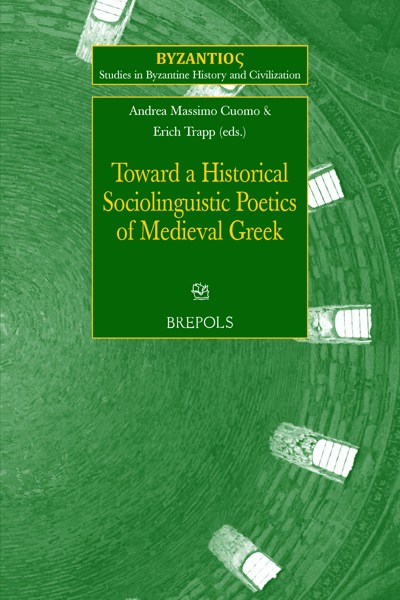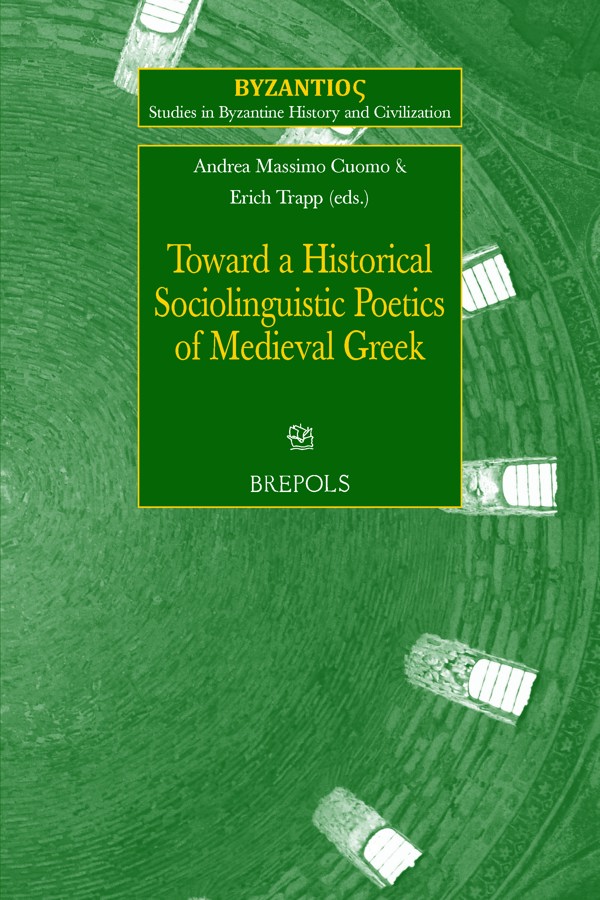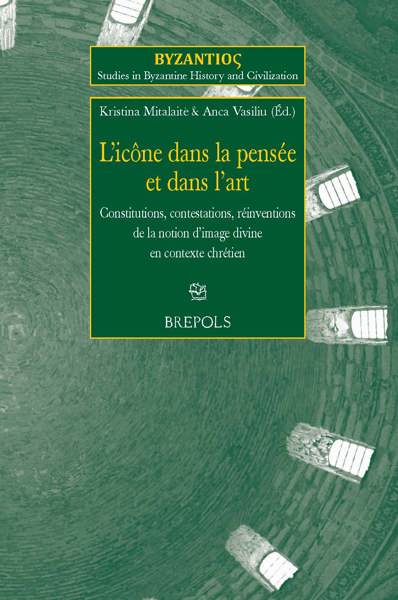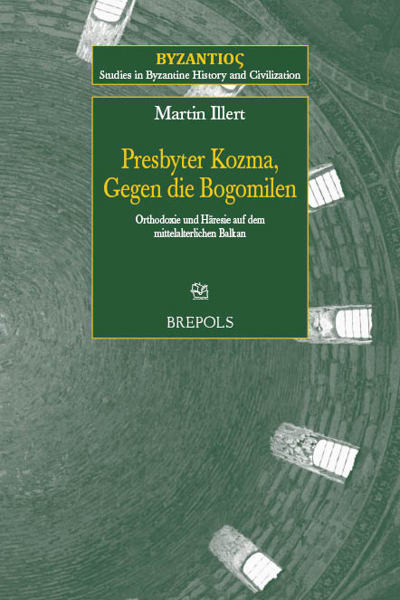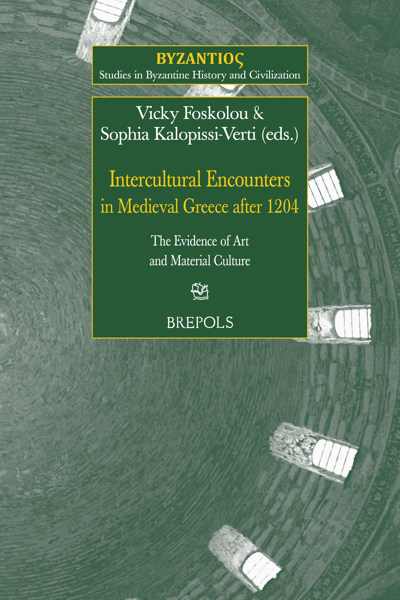
Toward a Historical Sociolinguistic Poetics of Medieval Greek
Andrea Cuomo, Erich Trapp (eds)
- Pages: 233 p.
- Size:156 x 234 mm
- Illustrations:11 b/w
- Language(s):English, French, Italian
- Publication Year:2018
- € 70,00 EXCL. VAT RETAIL PRICE
- ISBN: 978-2-503-57713-5
- Paperback
- Available
- € 70,00 EXCL. VAT RETAIL PRICE
- ISBN: 978-2-503-57714-2
- E-book
- Available
- Contains contributions in Open Access
This volume collects some of the papers presented at two international conferences, held in Vienna, on historical sociolinguistics and late Byzantine historiography.
“This collective volume makes a considerable attempt to insert modern sociolinguistic theories in byzantine texts. Of great significance is the fact that several byzantine manuscripts are re-examined as schoolbooks (…) this book is a valuable contribution to the knowledge of Palaeologan literature and to the manifestation of the special interest Byzantine scholars showed towards linguistic matters.” (Anna Sklaveniti, in Byzantina Symmeikta, 28, 2018, p. 387)
"The volume takes up the challenge of applying the methodologies of sociolinguistics to a superposed variety of the language, a form of it that survives only in writing and about the speakers of which there is only limited evidence." (Foteini Spingou, in: Bryn Mawr Classical Review, 2019.09.42)
Andrea Massimo Cuomo has worked as a PostDoc researcher at the Division of Byzantine Research of the Austrian Academy of Sciences in Vienna since 2012. His main areas of research include classical education in Palaeologan Byzantium, historical sociolinguistics, and late Byzantine scholia on Sophocles.
Erich Trapp was appointed professor at the University of Bonn in 1973, where he held the chair of Byzantine Studies until 2007. He was the editor of the Prosopographisches Lexikon der Palaiologenzeit and of the Lexikon zur Byzantinischen Gräzität. He is currently a Guest Researcher at the Austrian Academy of Sciences in Vienna.
How can historical sociolinguistic analyses of Medieval Greek aid in the interpretation of Medieval Greek texts? This is the main question addressed by the papers collected in this volume. Historical sociolinguistics (HSL) is a discipline that combines linguistic, social, historical, and philological sciences, and suggests that a language cannot be studied apart from its social dimension. Similarly, the study of a language in its social dimension is nothing else than the study of communication between members of a given speech community by means of written texts, the shared "signs" used by authors to communicate with their audiences.
This volume is divided into two parts. In the first, Cuomo’s and Bentein’s papers aim to offer an overview of the discipline and examples of applied HSL. Valente’s, Bianconi’s, and Pérez-Martín’s papers show how the context of production and reception of Byzantine texts should be studied. These are followed by Horrocks’ study on some features of Atticized Medieval Greek. In the second part, the contributions by Telelis, Odorico, and Manolova focus on the context of reception of texts by Georgios Pachymeres, Theodoros Pediasimos, and Nikephoros Gregoras respectively.
Andrea Massimo Cuomo, Historical Sociolinguistics – Pragmatics and Semiotics, and the Study of Medieval Greek Literature
Klaas Bentein, Towards a Socio-Historical Analysis of Ancient Greek? Some Problems and Prospects
Stefano Valente, Old and New Lexica in Palaeologan Byzantium
Daniele Bianconi, La lettura dei testi antichi fra erudizione e didattica. Qualche esempio d’età Paleologa
Inmaculada Pérez Martín, Aristides’ Panathenaikos as a Byzantine schoolbook: Nikephoros Gregoras’ notes on Ms. Escorial Φ.Ι.18
Geoffrey Horrocks, Georgios Akropolitis: Theory and Practice in the Language of later Byzantine Historiography
Ioannis Telelis, Tεχνικὸς διδάσκαλος: Georgios Pachymeres as Paraphrast of Aristotelian Meteorology
Divna Manolova, The Student Becomes the Teacher: Nikephoros Gregoras’ Hortatory Letter Concerning Astronomy
Paolo Odorico, Identité et craintes. Théodore Pédiasimos à Serrès au XIVe siècle
